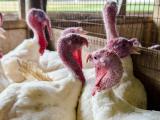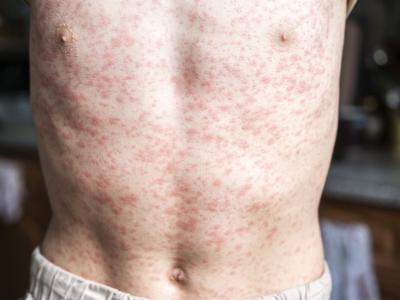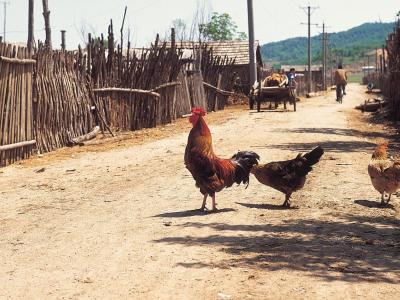Jul 25, 2012
Mexico culls 3.8 million poultry in response to H7N3 outbreak
Mexico has now culled about 3.8 million poultry to stop the spread of H7N3 avian flu in Jalisco state, the nation's health agency said in a report today to the World Organization for Animal Health (OIE). Mexico's National Food Quality, Food Safety and Health Service has tested 32,108 samples obtained from 363 at-risk poultry farms and has identified 35 H7N3 isolates. The farms house about 17 million birds. About 15 million doses of H7N3 vaccine will arrive this week as part of the country's infection control plan, according to a story today from the Spanish-language news agency EFE. About 4.9 million birds have either died from the disease or been culled since the outbreak began about a month ago, the story said. Yesterday the Wall Street Journal reported that a rise in egg and poultry prices caused by the outbreak contributed to Mexico's highest inflation rate in 18 months.
Jul 25 OIE report
Jul 25 EFE story
UK approves free FluMist for all kids
All UK children aged 2 to 17 years will be eligible to receive FluMist, the nasal-spray flu vaccine made by AstraZeneca, free of charge under a newly expanded program there, according to a Reuters report today. Currently, the UK's National Health Service provides flu vaccine only for children with risk factors such as asthma, heart conditions, or cerebral palsy. The cost of the UK program, which will cover up to 9 million children, will be more than US $155 million per year. Complete rollout will take until at least 2014 because of limitations on manufacturing capacity. This is AstraZeneca's first large contract for FluMist outside of the United States, where the vaccine has been available for a decade.
Jul 25 Reuters story
Study: Postpandemic influenza B unexpectedly severe in adults
Although 2009 H1N1 influenza A (pH1N1) infections have gained more notoriety, influenza B infections, often thought of as mild illnesses in adults, can be just as severe, say results of a Spanish study in the Journal of Infection. Fifty adult patients with laboratory-confirmed influenza B and 80 with pH1N1 who were hospitalized or were followed as outpatients because of pregnancy or solid-organ transplant were studied prospectively during the postpandemic 2010-11 flu season to compare features, severity, and outcomes. Median age of the flu B patients was 34 and of the pH1N1 patients 39. Disease was considered severe in 32 (64%) of flu B and in 55 (68%) of pH1N1 cases (P = 0.57). Five (10%) of the flu B and 14 (17.5%) of the pH1N1 patients were admitted to the intensive care unit (P = 0.23). Fourteen (28%) of the flu B patients and 30 (37.5%) of the pH1N1 patients had pneumonia (P = 0.26); in the pneumonia patients, bacterial co-infection was present in 5 (37.7%) with flu B and 4 (13.3%) with pH1N1 (P = 0.11). Overall, 5 (10%) flu B patients and 13 (16.3%) pH1N1 patients died (P = 0.31); the outcome was worse in those with pneumonia: 4 (28.5%) of the flu B pneumonia patients and 12 (40%) of the pH1N1 pneumonia patients died (P = 0.46).
Jul 23 J Infection study abstract
FDA warns Sanofi about violations at 2 vaccine plants
The US Food and Drug Administration (FDA) found "significant objectionable conditions" and deviations from current good manufacturing practices (CGMP) at Sanofi Pasteur vaccine plants in Canada and France, Bloomberg News reported yesterday. In a Jul 12 letter that was made public yesterday, the agency cited 24 instances of failure to meet CGMP at a Toronto plant, including failure to follow procedures to prevent vaccine contamination, and two violations at a plant in Marcy l'Etoile, France. "Sanofi Pasteur takes the observations outlined in the recent FDA warning letter seriously," Sanofi Pasteur vaccine head Olivier Charmeil said in an e- mailed statement, adding that the company is working with the FDA to take immediate and long-term steps to address the problems. The agency summoned Charmeil and other executives to a meeting to discuss the violations. Last month the company recalled four batches of tuberculosis vaccine because of uncertain sterility during manufacture at the Toronto plant, the story said.
Jul 24 Bloomberg report
Jul 12 FDA letter
Dengue vaccine triggers strong immune response against 3 strains
Sanofi's candidate dengue vaccine induced an antibody response considered protective against three of four circulating dengue strains in Thai children 4 to 11 years old, according to a company press release today. The study, which included 4,002 children, found that the vaccine generated an antibody response against all four serotypes, but "evidence of protection" was demonstrated for just three of the serotypes. The release did not specify what constituted a protective immune response. Michel De Wilde, PhD, Sanofi's executive vice president of research and development, said in the release that the findings "represent a key milestone in the quest to develop a safe and efficacious human vaccine against dengue." Large-scale phase 3 trials involving 31,000 participants are under way in 10 Asian and Latin American countries, the company said.
Jul 25 Sanofi press release


















